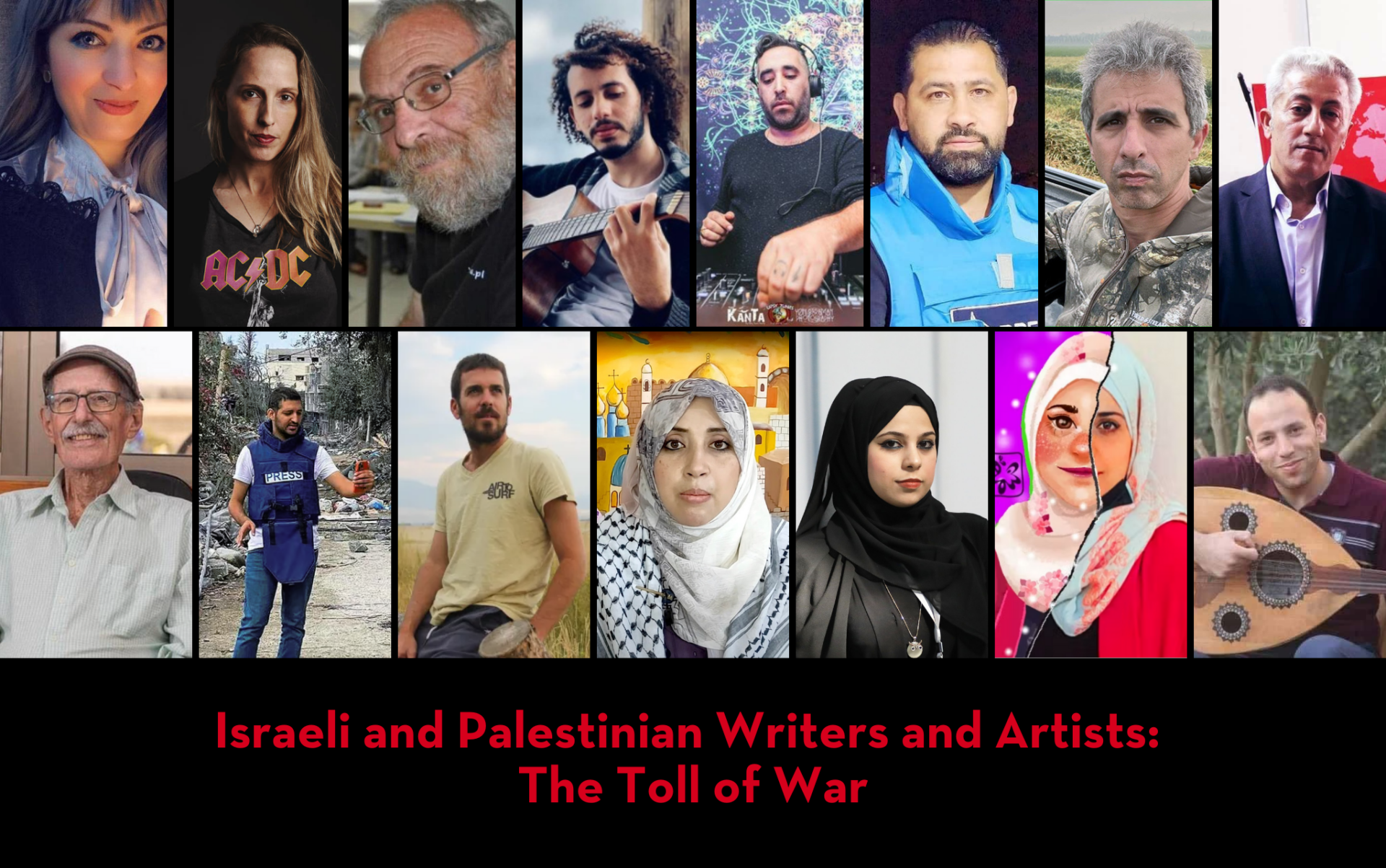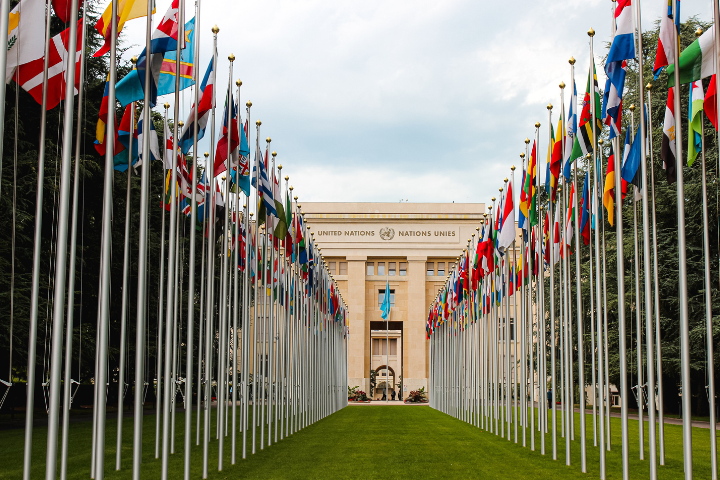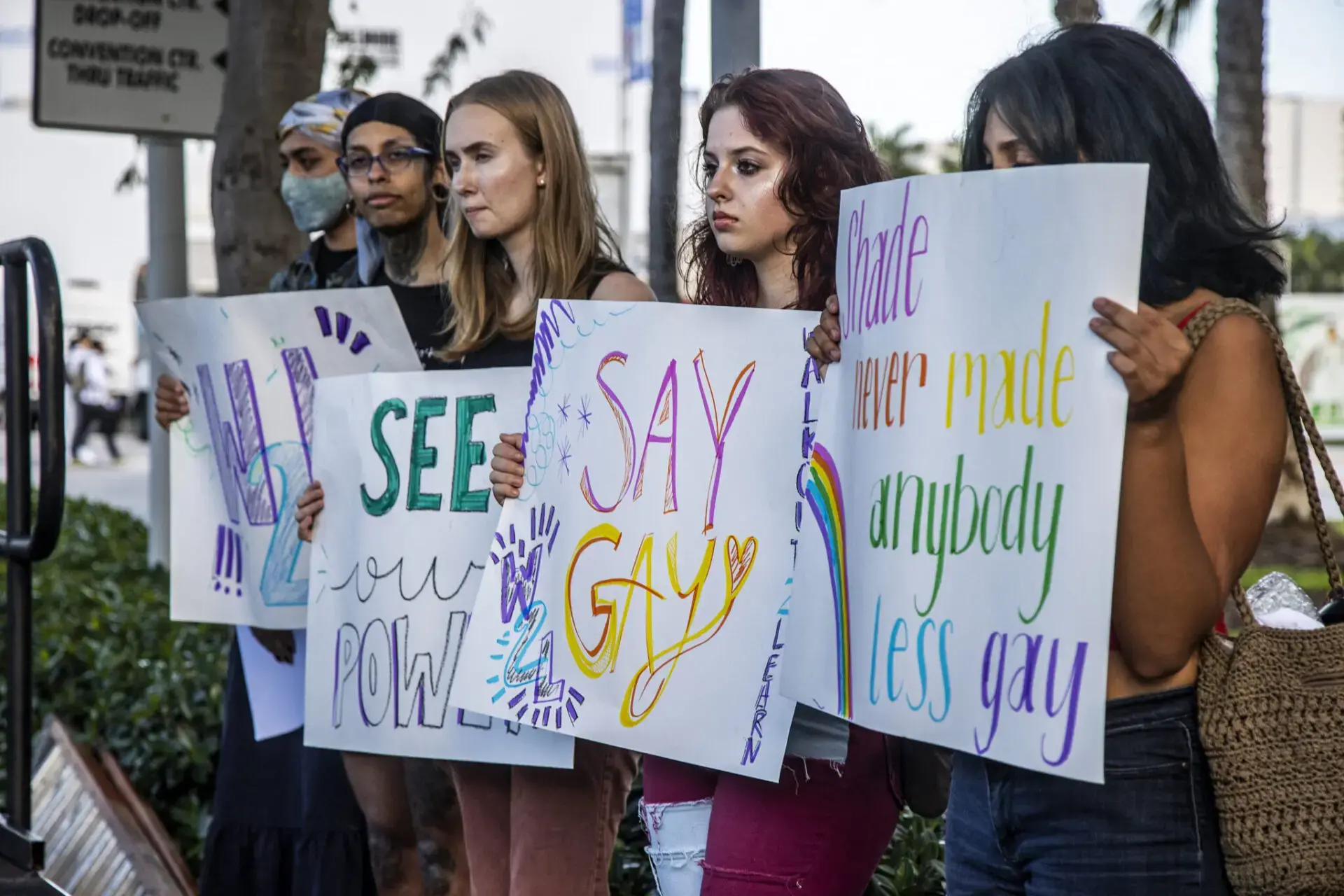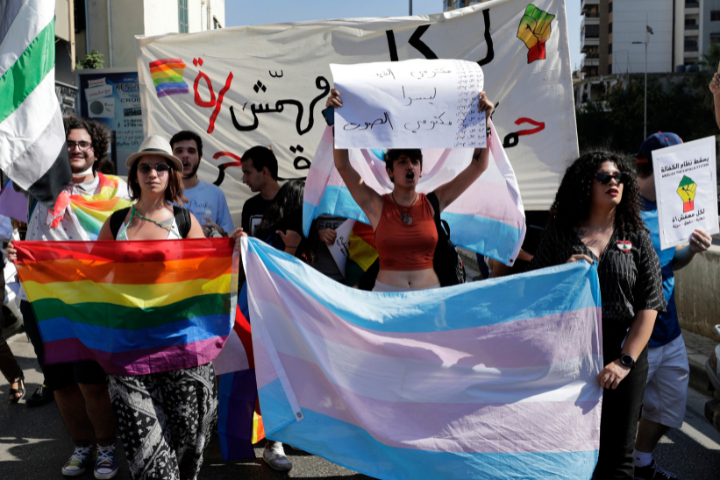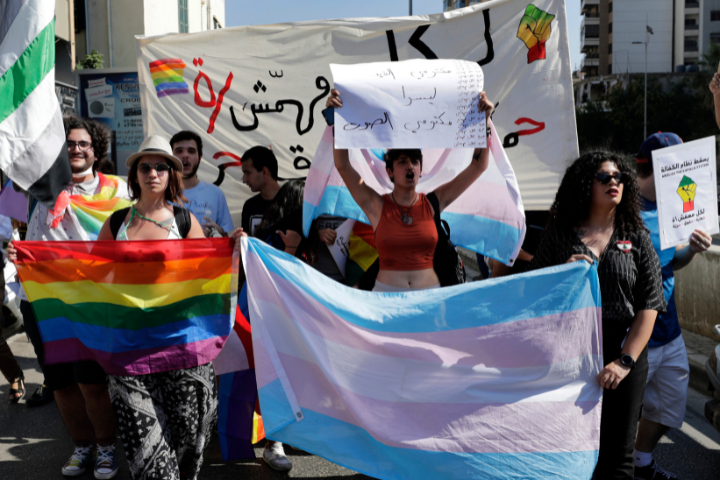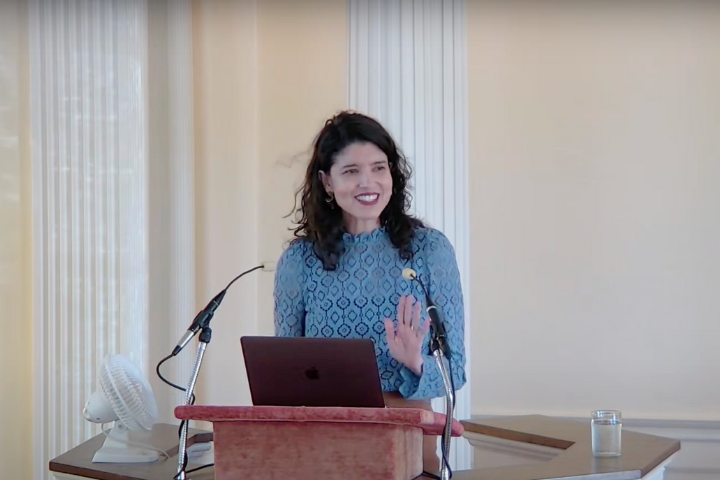PEN America, alongside PEN International and the Vietnamese PEN Abroad Centre, delivered an oral statement at the Fourth UPR Cycle pre-session in Geneva on February 13 providing recommendations to protect writers and dissidents at risk in Vietnam. The statement addressed key free expression concerns, including legislation criminalizing expression and government tactics that suppress online expression and opinions. This statement aligns with our joint UPR submission.
Vietnam UPR Pre-session Statement
This statement is delivered on behalf of PEN International, Vietnamese PEN Abroad Centre, and PEN America, three organizations that are dedicated to protecting freedom of expression and celebrating literature around the world and in Vietnam. While we did not partake in the national UPR consultation, discussions with our partners, prior statements, and reports inform this joint statement and our joint UPR submission.1“Joint Submission by PEN International, Vietnamese Abroad PEN Centre and PEN America in Advance of the Fourth Universal Periodic Review of the Socialist Republic of Vietnam.” PEN America, October 24, 2023. https://pen.org/press-release/documenting-vietnams-serious-free-expression-violations/. Our conclusion is that, despite concrete recommendations about improving freedom of expression,2“Universal Periodic Review – Viet Nam – Matrix of Recommendations.” United Nations Human Rights Council, https://www.ohchr.org/en/hr-bodies/upr/vn-index. Vietnam has failed to uphold its legal obligations.
Issue 1: Legislation Restricting Freedom of Expression
Authorities have continued to arrest, charge, and imprison writers, journalists and activists for exercising their right to freedom of expression.3“Database of Persecuted Activists in Vietnam,” 88 Project, February 1, 2024, https://the88project.org/database/. Included among those detained are 18 writers and 37 journalists.4The number of writers referenced are adjusted to account for cases added to the Writers at Risk database retroactively. “Freedom to Write Index 2022.” PEN America, May 15, 2023, https://pen.org/report/freedom-to-write-index-2022/; According to RSF, 37 journalists are detained in Vietnam as of 1 February 2024. See: https://rsf.org/en/barometer. Many were arrested for making critical statements against the government under the guise of violating Article 117 and 331 of the 2015 Penal Code.5“Freedom to Write Index 2022.” PEN America, May 15, 2023. https://pen.org/report/freedom-to-write-index-2022/. Vietnam’s 2018 Cybersecurity Law, Decree 53, and draft Decree 72’s mandates on local data storage and government control over online content also raises concerns for free expression and privacy.6“Decree 53/2022/ND-CP Detailing the Law on Cyber Security.” LuatVietnam. https://english.luatvietnam.vn/decree-no-53-2022-nd-cp-dated-august-15-2022-of-the-government-detailing-a-number-of-articles-of-the-law-on-cyber-security-228170-doc1.html; Tran, Giang, Thi Huong. “Decree 53 Provides Long-Awaited Guidance on Implementation of Vietnam’s Cybersecurity Law – Security – Vietnam.” Decree 53 Provides Long-Awaited Guidance on Implementation Of Vietnam’s Cybersecurity Law – Security – Vietnam, 19 August 2022. https://www.mondaq.com/security/1223282/decree-53-provides-long-awaited-guidance-on-implementation-of-vietnam39s-cybersecurity-law. Despite “noting” several recommendations on the 2015 Penal Code and Cybersecurity Law, Vietnam has failed to make any substantive changes.
States should recommend that the Socialist Republic of Vietnam:
- Amend current legislation to ensure that it is consistent with freedom of expression and right to privacy. Specifically, we recommend the revision of the following laws:
- Vietnam Penal Code (2015) – the removal of Articles 117 and 331
- Cybersecurity Law (2018) – the removal of Articles 5 and 8 and Decree 53
- Draft Decree 72 – the removal of Articles 26 and 30
Issue 2: Free expression online
Traditional avenues of expression, including the press, television, radio, and other publications, are government-controlled,7ICJ – International Commission of Jurists, “Dictating the Internet: Curtailing Free Expression and Information Online in Vietnam,” December 2020, https://www.icj.org/wp-content/uploads/2020/12/Vietnam-Freedom-of-expression-Publications-reports-thematic-reports-2020-ENG.pdf. making social media platforms, like Facebook, important spaces for expression. The laws that require local data storage and data handover jeopardize writers’ free expression by expanding the state’s capacity for surveillance and censorship online. The Ministry of Information and Communications used the overly broad “toxic” category to block 2,000 websites in 2021, causing a significant chilling effect on online free expression.8BỘ TT&TT Kiên Quyết Ngăn chặn, xử LÝ Các Thông Tin Xấu độc trên mạng xã hội, January 2022. https://www.mic.gov.vn/mic_2020/Pages/TinTuc/152518/Bo-TT-TT-kien-quyet-ngan-chan–xu-ly-cac-thong-tin-xau-doc-tren-mang-xa-hoi.html. Furthermore, dissenting voices face harassment by pro-government digital militias Force 47 and E47, known for doxing and mass reporting on platforms like Facebook and YouTube.9In 2015, Vietnam created a 10,000-member cyber military force called Force 47 to monitor and suppress digital free expression, primarily on platforms like Facebook and YouTube. Over time, this force expanded, including a citizen-led affiliate group called E47, and employed tactics like doxing, mass reporting on Facebook to remove pages, and exploiting the platform’s challenging appeals process, which strains targeted individuals due to a shortage of Vietnamese-language specialists for assistance. Do, Dai, Duyen Bui, and Michel Tran Duc. “#StopVNtrolls: Combatting Force 47 and Cyber Censorship.” Viet Tan, February 2023. https://drive.google.com/file/d/1LShaLD0nDPJxx4qKvd6gHiQ85l4_C3ff/view.
States should recommend the Socialist Republic of Vietnam:
- Implement robust data protection measures for user data stored within Vietnam, including strict safeguards against unauthorized access and misuse and refrain from local data storage and handovers without a judicial warrant.
- Adhere to international data protection standards to ensure the privacy rights of individuals are respected.
- Cease the activities of Force 47 and E47 including the mass reporting and doxing of accounts and posts.
Issue 3: Treatment of writers and artists
The Vietnamese government systematically violates individuals’ right to freely express opinions, access information, and exercise their cultural rights. Since the last UPR review, an increasing number of writers have been detained. In 2019, PEN America documented 10 Vietnamese imprisoned writers.10The numbers are adjusted to account for cases added to the Writers at Risk database retroactively. “Freedom to Write Index 2019,” PEN America, May 6, 2020, https://pen.org/report/freedom-to-write-index-2019/. By 2022, that number had surged to 18, putting Vietnam fourth globally in imprisoning writers.11The numbers are adjusted to account for cases added to the Writers at Risk database retroactively.“Freedom to Write Index 2022.” PEN America, May 15, 2023. https://pen.org/report/freedom-to-write-index-2022/. These numbers are in addition to the 150+ journalists and activists that are imprisoned in Vietnam.12“Database of Persecuted Activists in Vietnam,” 88 Project, February 1, 2024, https://the88project.org/database/.
A significant subset of those detained are online commentators who express views on topics such as human rights, women’s rights, corruption, and other issues. These cases are often accompanied by violations of due process and fair trial rights that have undermined access to justice. The Vietnamese government imposes lengthy prison sentences and denies inmates adequate medical treatment.13Ibid. “Freedom to Write Index 2022.” PEN America, May 15, 2023, https://pen.org/report/freedom-to-write-index-2022/. Authorities further intimidate and silence writers and artists through travel bans, equipment confiscation, and detentions based on artistic work.14“Joint Submission by PEN International, Vietnamese Abroad PEN Centre and PEN America in Advance of the Fourth Universal Periodic Review of the Socialist Republic of Vietnam.” PEN America, October 24, 2023. https://pen.org/press-release/documenting-vietnams-serious-free-expression-violations/.
States should recommend the Socialist Republic of Vietnam:
- Cease persecution of writers, journalists, and artists for exercising their free expression, release them from prison, and unconditionally drop all charges. Provide medical treatment to prisoners.
- Establish protection and development programs for cultural figures including writers and artists and organizations.
Concluding Remarks
Protecting and advancing free expression and human rights is essential in order for people to envisage a future grounded in freedom, dignity, and equality and where creativity can flourish. The influence and impact of writers, journalists, artists, and creatives means they can play an essential role in helping us imagine a better world, catalyzing resistance to abuses of power and building solidarity across communities. Thus, we kindly ask states to propose these recommendations.

